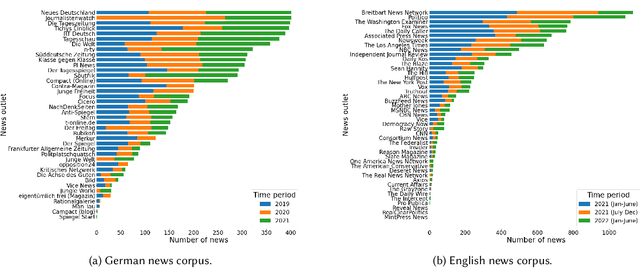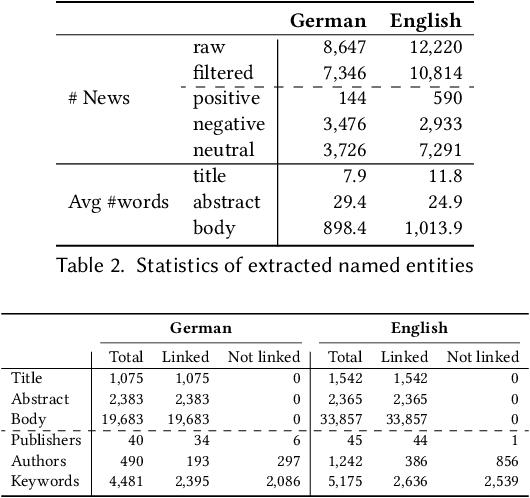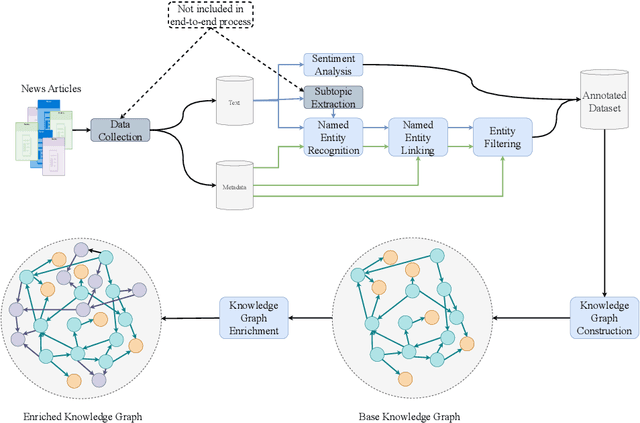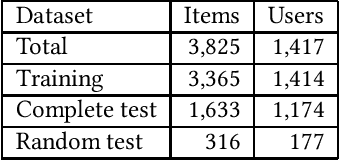Alexander Grote
NeMig -- A Bilingual News Collection and Knowledge Graph about Migration
Sep 01, 2023



Abstract:News recommendation plays a critical role in shaping the public's worldviews through the way in which it filters and disseminates information about different topics. Given the crucial impact that media plays in opinion formation, especially for sensitive topics, understanding the effects of personalized recommendation beyond accuracy has become essential in today's digital society. In this work, we present NeMig, a bilingual news collection on the topic of migration, and corresponding rich user data. In comparison to existing news recommendation datasets, which comprise a large variety of monolingual news, NeMig covers articles on a single controversial topic, published in both Germany and the US. We annotate the sentiment polarization of the articles and the political leanings of the media outlets, in addition to extracting subtopics and named entities disambiguated through Wikidata. These features can be used to analyze the effects of algorithmic news curation beyond accuracy-based performance, such as recommender biases and the creation of filter bubbles. We construct domain-specific knowledge graphs from the news text and metadata, thus encoding knowledge-level connections between articles. Importantly, while existing datasets include only click behavior, we collect user socio-demographic and political information in addition to explicit click feedback. We demonstrate the utility of NeMig through experiments on the tasks of news recommenders benchmarking, analysis of biases in recommenders, and news trends analysis. NeMig aims to provide a useful resource for the news recommendation community and to foster interdisciplinary research into the multidimensional effects of algorithmic news curation.
Towards Analyzing the Bias of News Recommender Systems Using Sentiment and Stance Detection
Mar 11, 2022



Abstract:News recommender systems are used by online news providers to alleviate information overload and to provide personalized content to users. However, algorithmic news curation has been hypothesized to create filter bubbles and to intensify users' selective exposure, potentially increasing their vulnerability to polarized opinions and fake news. In this paper, we show how information on news items' stance and sentiment can be utilized to analyze and quantify the extent to which recommender systems suffer from biases. To that end, we have annotated a German news corpus on the topic of migration using stance detection and sentiment analysis. In an experimental evaluation with four different recommender systems, our results show a slight tendency of all four models for recommending articles with negative sentiments and stances against the topic of refugees and migration. Moreover, we observed a positive correlation between the sentiment and stance bias of the text-based recommenders and the preexisting user bias, which indicates that these systems amplify users' opinions and decrease the diversity of recommended news. The knowledge-aware model appears to be the least prone to such biases, at the cost of predictive accuracy.
 Add to Chrome
Add to Chrome Add to Firefox
Add to Firefox Add to Edge
Add to Edge